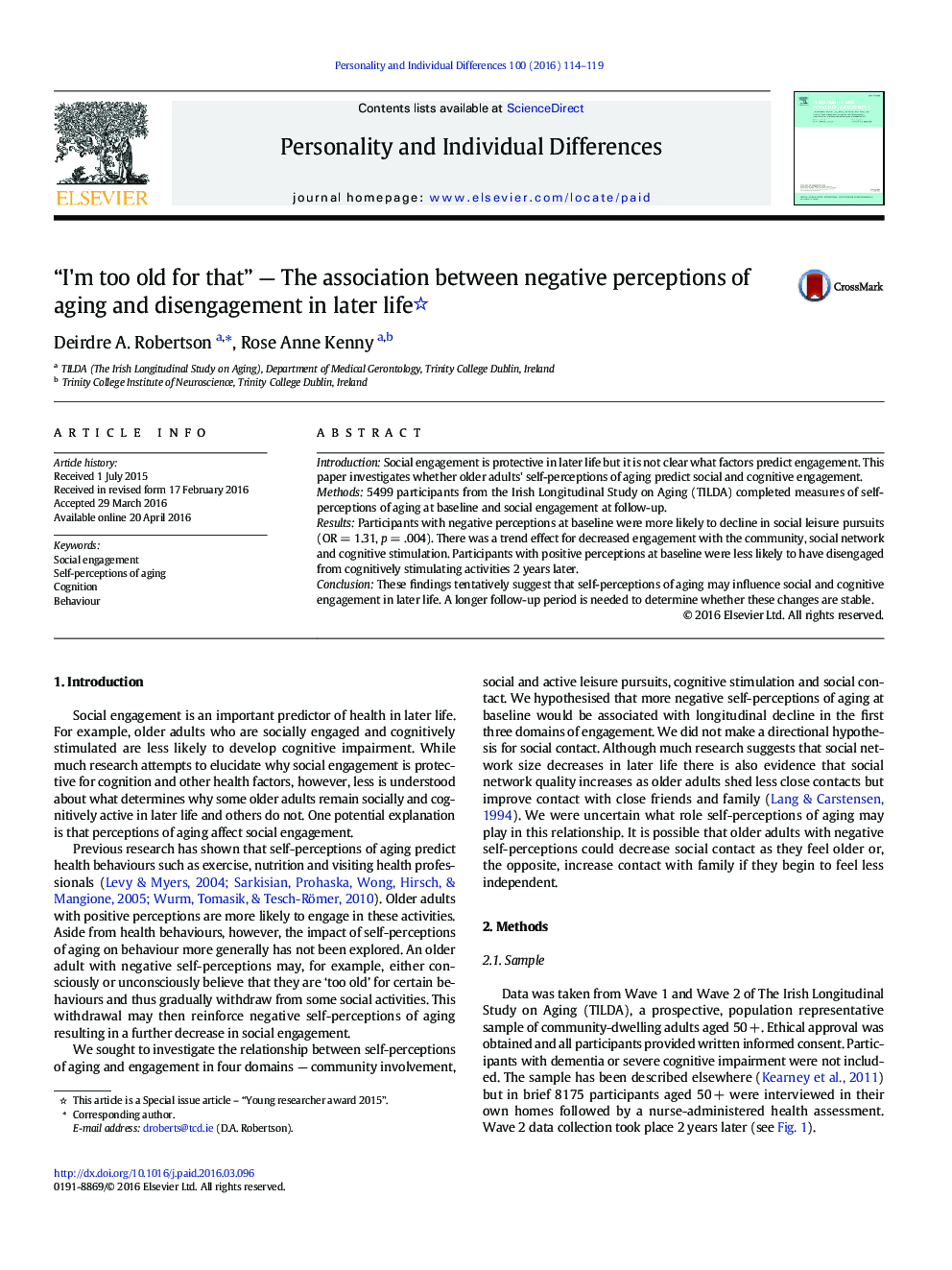| Article ID | Journal | Published Year | Pages | File Type |
|---|---|---|---|---|
| 889633 | Personality and Individual Differences | 2016 | 6 Pages |
•Negative self-perceptions of aging may increase the likelihood of social disengagement.•Older adults with positive self-perceptions of aging may be more likely to remain cognitively stimulated.•This study provides initial evidence for the effect of self-perceptions of aging on social engagement.
IntroductionSocial engagement is protective in later life but it is not clear what factors predict engagement. This paper investigates whether older adults' self-perceptions of aging predict social and cognitive engagement.Methods5499 participants from the Irish Longitudinal Study on Aging (TILDA) completed measures of self-perceptions of aging at baseline and social engagement at follow-up.ResultsParticipants with negative perceptions at baseline were more likely to decline in social leisure pursuits (OR = 1.31, p = .004). There was a trend effect for decreased engagement with the community, social network and cognitive stimulation. Participants with positive perceptions at baseline were less likely to have disengaged from cognitively stimulating activities 2 years later.ConclusionThese findings tentatively suggest that self-perceptions of aging may influence social and cognitive engagement in later life. A longer follow-up period is needed to determine whether these changes are stable.
